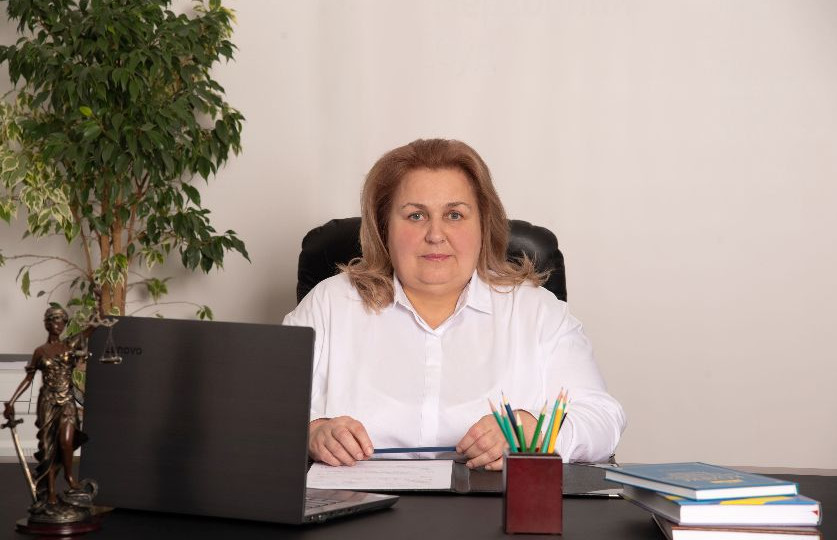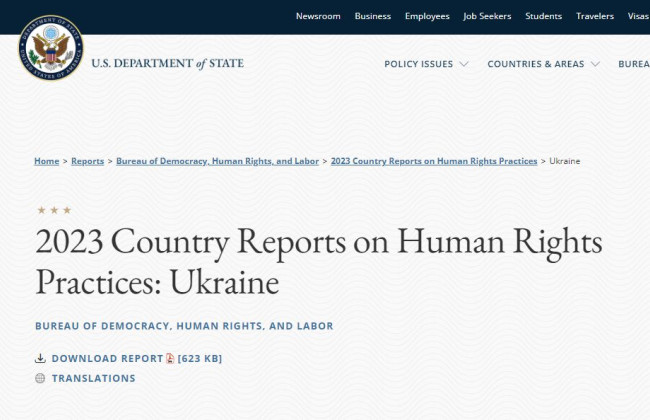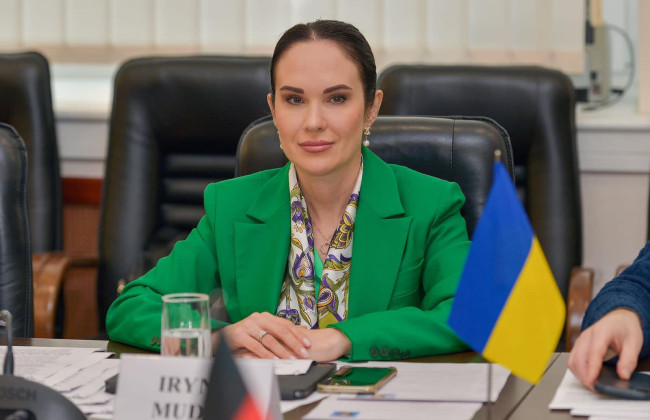Міжнародне оподаткування: поточний стан і перспективи

Ханова Раїса,
кандидат юридичних наук,
суддя Верховного Суду в Касаційному адміністративному суді, секретар судової палати з розгляду справ щодо податків, зборів та інших обов’язкових платежів, заслужений юрист України

Барікова Анна,
кандидат юридичних наук,
науковий консультант відділу забезпечення роботи секретаря та суддів судової палати управління забезпечення роботи судової палати з розгляду справ щодо податків, зборів та інших обов’язкових платежів секретаріату Касаційного адміністративного суду
Всеукраїнська асоціація адміністративних суддів України, спільно з Верховним Судом та експертами Міністерства фінансів України із залученням міжнародних експертів Організації економічного співробітництва та розвитку успішно провела унікальний практичний курс «Стандарти міжнародного оподаткування: імплементація та застосування в Україні».
Започаткування цього курсу (який в суддівській спільноті називають «податкова школа») як за часом проведення, так і за своїм змістом стало актуальним для всієї правової спільноти. Вперше було створено можливість для суддів адміністративних судів поглибити розуміння принципів міжнародного оподаткування та представлено приклади застосування цих знань на практиці при розгляді відповідних спорів. У межах курсу особливу увагу було приділено прикладам правозастосовних підходів, зокрема, щодо:
- Ініціатив Організації економічного співробітництва та розвитку у сфері міжнародного оподаткування; особливостей імплементації у податковому праві України.
- Міжнародних податкових договорів та їхнього значення для оподаткування в Україні.
- Трансфертного ціноутворення.
- Обміну податковою та фінансовою інформацією.
Судова практика податкових спорів засвідчує, що набутті знання на цьому практичному курсі вже знаходять відображення в судових рішеннях. Звертаючись до наявної судової практики, можна виокремити приклади комплексного застосування стандартів міжнародного оподаткування під час вирішення податкових спорів.
Судді адміністративної юстиції застосовували запропоновані експертами курсу концептуальні підходи, зокрема:
– для вирішення спорів щодо джерел оподаткування доходів;
– для вирішення спорів у контексті уникнення податниками оподаткування, а також ухилення ними від сплати податків та запобігання з боку держави таким діям.
Наприклад, у справі № 560/9843/21 за позовом Товариства з обмеженою відповідальністю «Протеїн Інвест» до Головного управління ДПС у Хмельницькій області платник надав контролюючому органу належним чином засвідчені витяг із торгового реєстру підприємств та організацій Республіки Франція і довідку Головного Управління Державних Фінансів Французької Республіки про відсутність податкової заборгованості, а також офіційні сертифікати, видані Управлінням у справах підприємств Данії. Водночас контролюючий орган уважав, що такі документи не є належними і не дають підстави для звільнення від оподаткування виплачених нерезиденту доходів із джерелом їх походження з України.
Верховний Суд погодився з позиціями судів попередніх інстанцій, які підтримали платника.
Відповідно до пункту 1 статті 3 ратифікованої «Конвенції між Урядом України та Урядом Французької Республіки про уникнення подвійного оподаткування доходів і майна та попередження ухилень від сплати податків» термін «компетентний орган» означає стосовно України Міністерство фінансів або його повноважного представника; стосовно Франції – Міністра управління бюджетом або його повноважного представника.
Схожий підхід представлений і в пункті 1 статті 3 Конвенції між Урядом України і Урядом Королівства Данії про уникнення подвійного оподаткування та попередження податкових ухилень стосовно податків на доходи і майно.
У постанові від 13 лютого 2024 року Касаційний адміністративний суд у складі Верховного Суду дійшов висновку про те, що належним чином оформлені документи щодо компанії-нерезидента дають підстави для звільнення від оподаткування доходів із джерелом їх походження з України, виплачених нерезиденту країни, з якою Україна уклала міжнародний договір. Платник-резидент не має обов’язку оподатковувати доходи такого нерезидента із джерелом їх походження з України відповідно до законодавства України з питань оподаткування.
Судді також керувалися представленими на курсі підходами щодо концепцій «постійного представництва» та «бенефіціарного власника доходу».
Зокрема, у справі № 640/35881/21 за позовом Представництва «Лундбек Експорт А/С» до Головного управління ДПС у м. Києві про визнання протиправними та скасування податкових повідомлень-рішень в постанові від 15 лютого 2024 року Верховний Суд дослідив питання визначення правової природи постійного представництва.
Представництво вважало себе постійним, оскільки 16 років перебуває та здійснює діяльність за однією і тією самою адресою, має відповідний штат працівників та основні засоби. Контролюючий орган ці обставини не заперечував, але не визнавав постійним представництво, діяльність якого має лише підготовчий або допоміжний характер для нерезидента.
Суди попередніх інстанцій звернули увагу на те, що 74% виручки надійшло безпосередньо компанії, а понесені данською материнською компанією витрати на утримання представництва становили майже 26% від виручки, яку компанія отримує в Україні. Тому суди не погодилися з контролюючим органом щодо кваліфікації таких витрат від отриманої в Україні виручки як істотних.
На переконання Верховного Суду, суди попередніх інстанцій обґрунтовано вказали, що в контексті розмежування основної, підготовчої та допоміжної діяльності необхідно враховувати, що:
– підготовча чи допоміжна діяльність має здійснюватися на користь нерезидента, а не для третіх осіб;
– основною зазвичай сприймається діяльність, що є суттєвою і важливою, зважаючи на зміст комерційних цілей і завдань організації;
– підготовча діяльність передує початку основної діяльності нерезидента на території України;
– допоміжна діяльність забезпечує процес ведення основної господарської діяльності нерезидентом, здійснюється одночасно з основною діяльністю, але до основної не належить.
Касаційний адміністративний суд у складі Верховного Суду, застосувавши положення «Конвенції між Урядом України і Урядом Королівства Данії про уникнення подвійного оподаткування та попередження податкових ухилень стосовно податків на доходи і майно» і «Модельної конвенції Організації економічного співробітництва і розвитку щодо податків на доходи і капітал», яка становить джерело уніфікованих рішень щодо найбільш поширених питань, які виникають у сфері міжнародного оподаткування та усунення подвійного оподаткування, дійшов висновку, що міжнародне законодавство не визначає конкретних строків, після спливу яких представництво набуває статусу постійного. За загальним правилом для набуття статусу постійного представництва ведення діяльності має бути регулярним, стабільним і стаціонарним, тобто розташовуватись у певному місці і з певним ступенем тривалості. Прямо також не вказано на можливість віднесення представництва до категорії «постійного» залежно від розміру витрат, понесених материнською компанією на його утримання. Розмір витрат, що здійснює нерезидент на утримання представництва, можна розглядати як такі, що свідчать на користь висновку про необхідність надання такому представництву статусу «постійного». Для визначення того, чи є такі витрати дійсно значними, потрібно порівнювати обсяг фінансування представництва із загальним обсягом коштів, отриманих нерезидентом від здійснення господарської діяльності, з урахуванням у сукупності також особливостей сфери бізнесу, ситуації на ринку тощо.
Одним із визначальних критеріїв для відмежування «постійного» представництва від «непостійного» є характер діяльності, яку провадить материнська компанія і її представництво у договірній країні. Розв’язання питання того, чи належить така діяльність до підготовчої та/або допоміжної підлягає встановленню у кожному конкретному випадку окремо з урахуванням відповідних особливостей реалізації такої діяльності.
Верховний Суд уточнив, що як національне, так і міжнародне законодавство встановлює в одному із випадків, коли господарська діяльність нерезидента, яка здійснюється через його представництво в Україні, не підпадає під визначення «постійне представництво», можливість здійснення таким представництвом комбінації видів діяльності, якщо наслідком такої комбінації є сукупна діяльність підготовчого чи допоміжного характеру.
Під допоміжною діяльністю необхідно розуміти таку діяльність, результати якої суб’єкт господарювання використовує саме для обслуговування та супроводження свого основного виду діяльності. Діяльність допоміжного характеру можна здійснювати як тимчасово, так і на постійній основі. Визначальною в цьому випадку є оцінка саме характеру здійснюваних представництвом видів діяльності.
У справі № 826/13255/18 предметом спору було оскарження податкового повідомлення-рішення, яким резиденту було донараховано податок на доходи нерезидентів на користь британської компанії.
Основним видом діяльності платника-нерезидента з Великобританії є лізинг повітряних суден. За результатами проведеного аналізу умов лізингових угод стосовно оренди літака, укладених між компаніями Гібралтару та Великобританії, Великобританії та України, контролюючий орган дійшов висновку, що британська компанія здійснює транзит доходів від операційної оренди, отриманих на користь компанії-власника літака (виконує лише функцію номінального власника, посередника щодо такого доходу). Водночас бенефіціарним власником отриманого доходу є інша іноземна компанія, створена та зареєстрована відповідно до законодавства Гібралтару.
Верховний Суд погодився з судами попередніх інстанцій, які не взяли до уваги доводи податкового органу про окрему плату власникові літака. Контролюючий орган має довести, що нерезидент був агентом чи номінальним утримувачем (номінальним власником) або тільки посередником щодо такого доходу. Наведені висновки було зроблено на підставі принципу «превалювання суті над формою». Верховний Суд визначив, що необхідно враховувати не лише юридичну форму, а й економічну сутність господарських операцій. У випадку невідповідності юридичної форми її економічній сутності перевага надається останній. У контексті превалювання сутності над формою, кожна функціональна дія представництва має відповідного отримувача. Таким отримувачем може бути як безпосередньо представництво, так і підприємство або треті особи. Ділова мета відповідної функціональної дії характеризується особою, яка одержує економічний ефект відповідної функціональної дії.
Суд касаційної інстанції розтлумачив, що застосування концепції бенефіціарного власника до будь-яких інших доходів, аніж до процентів, дивідендів і роялті не відповідає положенням законодавства. З огляду на аналіз норм законодавства, платники податку – резиденти, що сплачують на користь нерезидентів доходи у вигляді лізингової / орендної плати, зобов’язані утримувати з таких доходів податок. Коли виплата лізингових платежів здійснюється на користь особи, яка є лізингодавцем, то така виплата за своєю сутністю є доходом. Під час виплати доходу нерезидентам такі платники мають право скористатися перевагами угод про уникнення подвійного оподаткування.
Прикладом застосування концепції «бенефіціарного власника доходу» й оподаткування доходів від процентів є справа № 540/726/20 за позовом Товариства з обмеженою відповідальністю «Атлас Енерджі» до Головного управління ДПС у Херсонській області, Автономній Республіці Крим та м. Севастополі.
Під час виплати на користь нерезидента зі Словаччини доходу з джерелом його походження з України платник застосував нульову ставку, керуючись Конвенцією про уникнення подвійного оподаткування та попередження податкових ухилень стосовно податків на дохід і майно. Платник також не утримував та не перераховував до бюджету податок за ставкою 15 відсотків від суми виплаченого доходу чеському нерезиденту-правонаступнику компанії, з якою платник мав кредитні зобов’язання, зокрема, щодо нарахованих процентів за позику. Контролюючий орган установив порушення щодо застосування знижених податкових ставок з огляду на відсутність відповідних повноважень у платника.
Суди попередніх інстанцій винесли рішення на користь платника, оскільки вважали, що було правомірно застосовано положення міжнародних договорів про уникнення подвійного оподаткування з договірними державами (з урахуванням довідок про підтвердження статусу нерезидентів). Суди не підтвердили, що саме компанія-правонаступник з Чехії є бенефіціарним власником процентів, виплачених на її користь.
У постанові від 09 серпня 2023 року Верховний Суд скасував оскаржувані судові рішення та відмовив у задоволенні позову; сформулював свою правову позицію, згідно з якою пункти 1–3 статті 11 ратифікованої «Конвенції між Урядом України і Урядом Словацької Республіки про уникнення подвійного оподаткування та попередження податкових ухилень стосовно податків на дохід і майно» закріплють можливість застосування зниженої податкової ставки у розмірі 10 відсотків.
Суд уточнив, що згідно з пунктами 1, 2 та 4 «Конвенції між Урядом України і Урядом Чеської Республіки про уникнення подвійного оподаткування та попередження податкових ухилень стосовно податків на доходи і майно» в контексті взаємовідносин з чеськими контрагентами оподаткування процентів у державі, в якій вони виникають, не може перевищувати 5 відсотків від загальної суми процентів. Застосування податкової пільги за міжнародним договором можливе, якщо отримувач доходу є бенефіціарним власником отриманих процентів, тобто має право отримувати вигоду та визначати подальшу економічну долю доходу, а також не пов'язаний договірними або юридичними зобов'язаннями щодо перерахування такого доходу іншій особі. Установлені міжнародними договорами пільги зі сплати податку не можна застосовувати, якщо нерезидент діє як проміжна ланка в інтересах іншої особи, яка фактично отримує вигоду від доходу.
На переконання суду касаційної інстанції, положення міжнародних конвенцій не надають платнику право вибору, в якій саме з двох договірних держав буде оподатковуватися одержаний дохід. Водночас можна застосувати компромісне рішення для двох держав, яке встановлює оподаткування процентів у країні нерезидента, але залишає таке право і країні – джерелу походження процентів, якщо це закріплено податковим законодавством цієї держави. Таким чином, проценти, сплачені за кредитним договором (договором позики) нерезиденту, можна також оподатковувати в Україні відповідно до її законодавства, з урахуванням норм міжнародних угод щодо максимального розміру ставки податку та інших особливостей оподаткування за цими угодами.
Іншим прикладом судової практики про особливості оподаткування доходів від процентів є постанова у справі № 820/1212/17 за позовом Державного підприємства «Південна залізниця» до Офісу великих платників податків Державної податкової служби.
Згідно з контрактом платника з нерезидентом, заплановані роботи з виготовлення електропоїздів було завершено до терміну сплати відсотків за кредит, а таку сплату було розпочато після виготовлення поїздів, тобто після створення кваліфікаційного активу. Контролюючий орган уважав, що такі операції між платником та нерезидентом не підпадають під дію угоди про уникнення подвійного оподаткування.
Суди попередніх інстанцій не погодилися зі здійсненою кваліфікацією спірних правовідносин, але не дослідили суть відповідних операцій, попри те, що контролюючий орган під час судового процесу заперечував правомірність звільнення від оподаткування при виплаті доходів нерезиденту, який не є фактичним отримувачем доходу.
Верховний Суд скасував оскаржувані судові рішення та направив справу на новий розгляд до суду першої інстанції. Розв'язуючи питання оподаткування процентів, сплачених нерезиденту, суд касаційної інстанції висловив свою позицію в постанові від 02 травня 2023 року.
Угоди про уникнення подвійного оподаткування не можна застосовувати до ситуацій, коли відносини між резидентом та нерезидентом не пов’язані з фактичним веденням господарської діяльності, а дії учасників цих відносин спрямовані лише на створення зручного (пільгового) податкового режиму. Пільги за міжнародними угодами щодо уникнення подвійного оподаткування мають стосуватися лише податкового резидента, який є дійсним одержувачем доходу.
У випадках, наведених у Коментарях (агент, номінал, посередник тощо), безпосередній отримувач процентів не вважається бенефіціарним власником, оскільки право отримувача вільно розпоряджатись такими процентами обмежено на підставі договірних або інших юридичних обов’язків передати отриманий платіж іншій особі. Такий обов’язок зазвичай випливає з юридичних документів, але також може виникнути відповідно до фактів та обставин, які вказують, що отримувач процентів не має права вільно розпоряджатись такими процентами.
Верховний Суд визначив загальні ознаки, які можуть вказувати на те, що особа-нерезидент не є кінцевим бенефіціарним власником доходу у вигляді процентів, зокрема:
– відсутність фактичного самостійного здійснення господарської діяльності резидента держави, з якою Україна уклала договір про уникнення подвійного оподаткування;
– характер грошових потоків, який вказує на наявність юридичних та фактичних обов’язків щодо подальшого перерахування отримуваних процентів особою-нерезидентом третій особі та відсутність в особи-нерезидента можливості самостійного прийняття рішення про долю отримуваного доходу та контроль щодо отримуваного доходу;
– мінімальний часовий інтервал між укладенням договору, отриманням доходу особою-нерезидентом і виплатою грошових коштів третій особі;
– відсутність диференційованих умов договорів і відповідних нормативно-правових актів;
– вчинення дзеркальних, тобто ідентичних операцій між резидентом та особою-нерезидентом;
– фактичні ризики.
Актуальна судова практика узгоджена із висвітленими експертами курсу світовими стандартами щодо трансфертного ціноутворення, зокрема, про:
– реалізацію принципу «витягнутої руки»;
– аналіз зіставності та методи трансфертного ціноутворення;
– коригування з трансфертного ціноутворення.
Так, у постанові від 21 листопада 2023 року у справі № 640/329/20 за позовом Публічного акціонерного товариства «АрселорМіттал Кривий Ріг» до Східного міжрегіонального управління ДПС по роботі з великими платниками податків було реалізовано загальноправовий принцип дії закону в часі в контексті трансфертного ціноутворення, застосування принципу «витягнутої руки».
Податковий орган дійшов висновку, що операції не належать до контрольованих, оскільки платник не підтвердив рівень цін за правилами «витягнутої руки».
Суди попередніх інстанцій установили, що господарські операції з деякими контрагентами – нерезидентами було включено у звіти про контрольовані операції за 2016–2018 роки. Суди керувалися тим, що протягом 2018 року діяв Перелік держав (територій), які відповідають критеріям, установленим підпунктом 39.2.1.2 підпункту 39.2.1 пункту 39.2 статті 39 Податкового кодексу України, затверджений розпорядженням Кабінету Міністрів України від 27 грудня 2017 року № 1045. З 01 січня 2018 року сферу застосування переліку організаційно-правових форм (постанова Кабінету Міністрів України від 04 липня 2017 року № 480 «Про затвердження переліку організаційно-правових форм нерезидентів, які не сплачують податок на прибуток (корпоративний податок), зокрема податок з доходів, отриманих за межами держави реєстрації таких нерезидентів, та/або не є податковими нерезидентами держави, в якій вони зареєстровані, як юридичні особи») було поширено не тільки на статтю 39 Податкового кодексу України, а також на неконтрольовані операції у випадках, визначених підпунктом 140.5.4 пункту 140.5 статті 140 цього Кодексу.
Тобто протягом 2018 року йшлося про нормативно визначені організаційно-правові форми нерезидентів, які не сплачують податок на прибуток (корпоративний податок), зокрема податок з доходів, отриманих за межами держави реєстрації таких нерезидентів, та/або не є податковими резидентами держави, в якій вони зареєстровані як юридичні особи. Згодом було внесено зміни до законодавства (чинні з 01 січня 2020 року) та додано інші організаційно-правові форми нерезидентів. Тому суди врахували той факт, що нерезиденти не відповідали вимогам зазначеного Переліку, внаслідок чого відсутні підстави для застосування до вказаних господарських операцій положення підпункту 140.5.4 пункту 140.5 статті 140 Податкового кодексу України. Було визнано частково необґрунтованим висновок акта перевірки щодо заниження фінансового результату до оподаткування.
Колегія суддів Верховного Суду погодилася з таким висновком судів попередніх інстанцій. Верховний Суд висловив свою позицію, згідно з якою з 01 січня 2017 року для визнання господарських операцій контрольованими вони мають відповідати таким умовам:
– річний дохід платника податків від будь-якої діяльності, визначений за правилами бухгалтерського обліку, перевищує 150 мільйонів гривень (за вирахуванням непрямих податків) за відповідний податковий (звітний) рік;
– обсяг таких господарських операцій платника податків з кожним контрагентом, визначений за правилами бухгалтерського обліку, перевищує 10 мільйонів гривень (за вирахуванням непрямих податків) за відповідний податковий (звітний) рік.
Платник податків зобов’язаний збільшити свій фінансовий результат на 30 відсотків у разі вчинення господарських операцій з нерезидентами, зареєстрованими у державах (на територіях), включених до переліку держав (територій), затвердженого Кабінетом Міністрів України або організаційно-правова форма яких включена до переліку, затвердженого Кабінетом Міністрів України, крім випадків віднесення таких операцій до контрольованих або підтвердження платником податків рівня цін за правилами «витягнутої руки».
Верховний Суд висловлював позиції про обмін податковою та фінансовою інформацією.
Наприклад, у справі № 2а-12868/12/2670 за позовом Державної податкової інспекції у Печерському районі м. Києва Державної податкової служби до Товариства з обмеженою відповідальністю «Ант Япи», Товариства з обмеженою відповідальністю «Ньюмодуль 2011» суть спору стосувалася визнання договору недійсним і стягнення коштів. Йшлося про підтвердження факту отримання агентських послуг шляхом обміну податковою інформацією.
Офіс великих платників ДФС України направив до компетентного органу Ізраїлю запит щодо отримання податкової інформації стосовно взаємовідносин між платником та компанією-нерезидентом. Міністерство фінансів Податкового управління Ізраїлю направило до ДФС України податкову інформацію, у якій зазначено, що нерезидент заснований у 1998 році з метою сприяння продажам в галузі зв’язку, систем, інтелектуальних систем, асиміляції, систем установки, навчання та технічної підтримки для різних клієнтів в Африці. Під час перевірки керівник компанії відмовився передавати угоди, оскільки заяви були конфіденційними перед своїми клієнтами, але дозволив розглянути угоди у його присутності. Зокрема, було знайдено договір з українським платником. За словами керівника компанії, він зв’язувався безпосередньо з постачальником і взагалі не працює з агентами, але для створення і супроводження проєкту існує договір з багатьма субпідрядниками для цілей транспортування, складання, навчання, асиміляції.
Водночас контролюючий орган дійшов висновку щодо непідтвердження факту отримання агентських послуг комісіонером від нерезидента на території країни замовника з огляду на наявні договірні умови, облікову документацію і протокол допиту підозрюваного засновника компанії платника-резидента України.
Верховний Суд погодився з судами попередніх інстанцій, які відмовили в задоволенні позову, оскільки вказані податковим органом обґрунтування не дають підстав для висновку про вчинення сторонами правочину з метою, завідомо суперечною інтересам держави і суспільства. Суд касаційної інстанції зазначив, що податкова інформація надійшла від Міністерства фінансів, тобто від компетентного органу держави Ізраїль в контексті Конвенції про уникнення подвійного оподаткування. Обов’язковий офіційний переклад здійснюється лише у випадку його необхідності. У суду касаційної інстанції не було підстав сумніватися в повноваженнях особи, що підписала зазначену відповідь, оскільки:
– відповідь на спеціальний запит було отримано від компетентного органу іноземних країн (така відповідь може, зокрема, містити копії документів, отримані після проведення опитування свідків, дані щодо визначення місцезнаходження особи, визначення фактів проведення комерційної діяльності у конкретній країні, а також встановлення наявності майна платника податків, а разі відсутності такого майна – його розшуку);
– після одержання відповіді від компетентного органу іншої країни на спеціальний запит, ДПС України надіслала відповідь разом з перекладом ініціатору запиту.
Отже, висвітлені приклади доводять професійне застосування вітчизняними судами знань міжнародного оподаткування. Безумовно, є перспективи подальшого вдосконалення судової практики, що сприятиме підвищенню довіри світової спільноти до українських органів судової влади.
З судовою практикою Верховного Суду щодо трансфертного ціноутворення можна ознайомитися в огляді.
International taxation: current state and prospects
A unique practical course “Standards of International Taxation: Implementation and Application in Ukraine” has been successfully held.
Hanova Raisa,
PhD in Law,
Judge of the Supreme Court in the Administrative Court of Cassation, Secretary of the Judicial Chamber for Taxes, Fees and Other Mandatory Payments
Barikova Anna,
PhD in Law,
Scientific Adviser of the Department for Ensuring the Work of the Secretary and Judges of the Judicial Chamber of the Office for Ensuring the Work of the Judicial Chamber for Taxes, Fees and Other Mandatory Payments of the Secretariat of the Administrative Court of Cassation
The All-Ukrainian Association of Administrative Judges of Ukraine, together with the Supreme Court and the experts of the Ministry of Finance of Ukraine with the involvement of international experts of the Organization for Economic Cooperation and Development, have successfully conducted a unique practical course “Standards of International Taxation: Implementation and Application in Ukraine”.
The launch of this course (which in the judicial community is called “tax school”) both in terms of time and content became relevant for the entire legal community. For the first time, an opportunity was created for judges of administrative courts to deepen their understanding of the principles of international taxation, and examples of applying this knowledge in practice when considering relevant presented disputes. Within the course, special attention was paid to examples of law enforcement approaches, in particular, regarding:
- Initiative of the Organization for Economic Cooperation and Development in the area of international taxation; peculiarities of implementation in the tax law of Ukraine.
- International tax treaties and their significance for taxation in Ukraine.
- Transfer pricing.
- Exchange of tax and financial information.
The judicial practice of tax disputes proves that the knowledge acquired on this practical course has already been reflected in court decisions. Referring to the existing judicial practice, it is possible to single out examples of complex application of international taxation standards during the resolution of tax disputes.
Judges of administrative justice have applied the conceptual approaches proposed by the course experts, in particular:
– to resolve disputes regarding sources of income taxation;
– to resolve disputes in the context of tax evasion by taxpayers, as well as tax evasion by the latter and prevention of such actions by the state.
For example, in the case No. 560/9843/21 on the claim of the Limited Liability Company “Protein Invest” to the Main Directorate of the State Tax Administration in Khmelnytskyi Region, the payer provided the supervisory authority with a duly certified extract from the trade register of enterprises and organizations of the Republic of France and a certificate from the Main Directorate of Public Finance of France of the Republic on the absence of tax arrears, as well as official certificates issued by the Danish Enterprise Authority. At the same time, the controlling body considered that such documents were not proper and did not provide grounds for tax exemption of income paid to a non-resident with its source of origin in Ukraine.
The Supreme Court agreed with the positions of the courts of previous instances, which supported the payer.
In accordance with the clause 1 of the Article 3 of the ratified “Convention between the Government of the Republic of France and the Government of Ukraine for the Avoidance of Double Taxation and the Prevention of Fiscal Evasion and Fraud”, the term “competent authority” means, in relation to Ukraine, the Ministry of Finance or its authorized representative; in relation to France, the Minister of Budget Management or the authorized representative.
A similar approach is presented in the clause 1 of the Article 3 of the Convention between the Government of Ukraine and the Government of the Kingdom of Denmark for the avoidance of double taxation and the prevention of fiscal evasion with respect to taxes on income and on property.
In the resolution dated of February 13, 2024, the Administrative Court of Cassation in the Supreme Court has come to the conclusion that properly executed documents regarding a non-resident company provide grounds for exemption from taxation of income with a source of origin in Ukraine, paid to a non-resident of a country with which Ukraine has concluded international agreement. A resident payer does not have the obligation to tax the income of such a non-resident with a source of origin in Ukraine, in accordance with the legislation of Ukraine on taxation.
The judges have also been guided by the approaches presented in the course regarding the concepts of “permanent establishment” and “beneficial owner of income”.
In particular, in the case No. 640/35881/21 on the claim of the Representation of Lundbek Export A/S to the Main Directorate of the State Tax Administration in Kyiv regarding the recognition as illegal and cancellation of tax notices-decisions in the resolution dated of February 15, 2024, the Supreme Court investigated the issue of determining the legal nature of permanent representation.
The representative office considered itself permanent, since it had been located and operated at the same address for 16 years, had the appropriate staff and fixed assets. The controlling body did not deny these circumstances, but did not recognize as a permanent representative office, the activity of which had only a preparatory or auxiliary character for a non-resident.
The courts of previous instances drew attention to the fact that 74% of the revenue went directly to the company, and the expenses incurred by the Danish parent company for maintaining a representative office amounted to almost 26% of the revenue that the company received in Ukraine. Therefore, the courts did not agree with the controlling body regarding the qualification of such expenses from the revenue received in Ukraine as significant.
According to the Supreme Court, the courts of previous instances reasonably indicated that in the context of distinguishing between main, preparatory and auxiliary activities, it is necessary to take into account that:
– preparatory or supporting activities are to be carried out for the benefit of the non-resident, and not for third parties;
– activities that are significant and important, based on the content of the organization’s commercial goals and tasks, are usually perceived as the main activity;
– preparatory activity precedes the start of the non-resident’s main activity on the territory of Ukraine;
– auxiliary activity ensures the process of conducting the main economic activity by a non-resident, is carried out simultaneously with the main activity, but does not belong to the main activity.
The Administrative Court of Cassation in the Supreme Court, applying the provisions of the “Convention between the Government of Ukraine and the Government of the Kingdom of Denmark for the Avoidance of Double Taxation and the Prevention of Fiscal Evasion with Respect to Taxes on Income and on Property” and the “Model Convention of the Organization for Economic Cooperation and Development on Taxes on Income and on Capital”, which is a source of unified decisions on the most common issues that arise in the area of international taxation and elimination of double taxation, has come to the conclusion that international law does not determine specific periods after which the representative office acquires permanent status. As a general rule, in order to acquire the status of a permanent establishment, the conduct of business is to be regular, stable and stationary, that is, located in a certain place and with a certain degree of duration. The possibility of classifying the representative office as “permanent” is not also directly indicated, depending on the amount of expenses incurred by the parent company for its maintenance. The amount of expenses incurred by a non-resident for the maintenance of a representative office could be considered as such, which testify in favour of the conclusion about the need to grant such a representative office the status of “permanent”. In order to determine whether such expenses are really significant, it is necessary to compare the amount of financing of the representative office with the total amount of funds received by a non-resident from the implementation of economic activities, taking into account also the peculiarities of the business area, the situation on the market, etc. in the aggregate.
One of the defining criteria for distinguishing a “permanent” representative office from a “non-permanent” one is the nature of the activities carried out by the parent company and its representative office in the contracting country. The decision of whether such an activity belongs to the preparatory and/or auxiliary is to be established in each specific case separately, regarding the relevant features of the implementation of such activity.
The Supreme Court has specified that both national and international legislation establish that one of the cases when the economic activity of a non-resident, carried out through its representative office in Ukraine, does not fall under the definition of “permanent representative office” is the implementation of a combination of types of activities by such representative office, if the consequence such a combination is a collective activity of a preparatory or auxiliary nature.
Auxiliary activity is to be understood as such activity, the results of which the economic entity uses precisely for the maintenance and support of its main type of activity. Activities of an auxiliary nature could be carried out both temporarily and on a permanent basis. The decisive factor in this case is the assessment of the nature of the types of activities carried out by the representative office.
In the case No. 826/13255/18, the dispute concerned an appeal against a tax notice-decision by which a resident was assessed additional tax on non-resident incomes in favour of a British company.
The main type of activity of a non-resident payer from Great Britain is aircraft leasing. Based on the results of the analysis of the terms of the leasing agreements regarding the lease of the aircraft, concluded between the companies of Gibraltar and Great Britain, Great Britain and Ukraine, the supervisory authority came to the conclusion that the British company transited the income from the operating lease received in favour of the company that owned the aircraft (only performing the function of the nominal owner, an intermediary regarding such income). At the same time, the beneficial owner of the received income is another foreign company created and registered under the laws of Gibraltar.
The Supreme Court has agreed with the courts of previous instances, which did not take into account the arguments of the tax authority about a separate payment to the owner of the aircraft. The controlling authority is to prove that the non-resident was an agent or nominal holder (nominal owner) or only an intermediary in respect of such income. The aforementioned conclusions were drawn on the basis of the principle of “substance over form”. The Supreme Court has determined that it is necessary to take into account not only the legal form, but also the economic essence of economic transactions. In case of inconsistency between the legal form and its economic essence, preference is given to the latter. In the context of the primacy of essence over form, each functional act of representation has a corresponding recipient. Such a recipient could be either a representative office directly, an enterprise or third parties. The business purpose of the corresponding functional action is characterized by the person who receives the economic effect of the corresponding functional action.
The court of cassation has explained that the application of the concept of beneficial owner to any other income than interest, dividends and royalties does not correspond to the provisions of the law. Based on the analysis of the legislation, resident taxpayers who pay income in the form of leasing / rent to non-residents are required to withhold tax from such income. When the payment of lease payments is made for the benefit of the person who is the lessor, such payment is inherently income. When paying income to non-residents, such payers have the right to take advantage of double taxation agreements.
An example of the application of the concept of “beneficial owner of income” and taxation of interest income is the case No. 540/726/20 on the claim of the Limited Liability Company “Atlas Energy” to the Main Department of the State Tax Administration in the Kherson region, the Autonomous Republic of Crimea and the city of Sevastopol.
During the payment to a non-resident from Slovakia of income with its source of origin in Ukraine, the payer applied a zero rate, guided by the Convention for the avoidance of double taxation and the prevention of fiscal evasion with respect to taxes on income and on capital. The payer also did not withhold and transfer to the budget a tax at the rate of 15 percent of the amount of income paid to the Czech non-resident successor of the company with which the payer had credit obligations, in particular, regarding accrued interest for the loan. The controlling body established a violation considering the application of reduced tax rates due to the lack of appropriate authority on the part of the payer.
Courts of previous instances ruled in favour of the payer, as they believed that the provisions of international treaties on the avoidance of double taxation with contracting states (taking into account the certificates confirming the status of non-residents) were legitimately applied. The courts did not confirm that the successor company from the Czech Republic was the beneficial owner of the interest paid in its favour.
In the resolution dated of August 9, 2023, the Supreme Court annulled the contested court decisions and refused to satisfy the claim; has formulated the legal position, according to which the clauses 1–3 of the Article 11 of the ratified “Convention between Government of the Slovak Republic and Government of Ukraine for the Avoidance of Double Taxation and the Prevention of Fiscal Evasion with Respect to Taxes on Income and on Capital” establish the possibility of applying a reduced tax rate of 10 percent.
The court clarified that according to the paragraphs 1, 2 and 4 of the “Convention between the Government of the Czech Republic and the Government of Ukraine for the Avoidance of Double Taxation and the Prevention of Fiscal Evasion with Respect to Taxes on Income and on Property” in the context of relations with Czech counterparties of interest taxation in the state in which they arise, could not exceed 5 percent of the total amount of interest. The application of a tax benefit under an international agreement is possible if the recipient of the income is the beneficial owner of the received interest, i.e. has the right to benefit and determine the further economic fate of the income, and is not bound by contractual or legal obligations to transfer such income to another person. Tax benefits established by international treaties could not be applied if a non-resident acts as an intermediary in the interests of another person who actually benefits from the income.
According to the court of cassation, the provisions of international conventions do not give the payer the right to choose in which of the two contracting states the received income will be taxed. At the same time, it is possible to apply a compromise solution for two countries, which establishes the taxation of interest in the country of the non-resident, but leaves such a right to the country – the source of origin of the interest, if this is established by the tax legislation of this country. Thus, interest paid under a credit agreement (loan agreement) to a non-resident could also be taxed in Ukraine in accordance with its legislation, taking into account the provisions of international agreements regarding the maximum amount of the tax rate and other features of taxation under these agreements.
Another example of the court practice on the peculiarities of taxation of interest income is the resolution in the case No. 820/1212/17 on the claim of the State Enterprise “Southern Railway” to the Office of Large Taxpayers of the State Tax Service.
According to the payer’s contract with a non-resident, the planned work on the manufacture of electric trains was completed before the deadline for the payment of interest on the loan, and such payment was started after the manufacture of the trains, that is, after the creation of the qualifying asset. The supervisory authority considered that such transactions between the payer and a non-resident were not subject to the double taxation avoidance agreement.
Courts of previous instances did not agree with the qualification of the disputed legal relationship, but did not examine the essence of the relevant transactions, despite the fact that the supervisory body during the trial denied the legality of exemption from taxation for the payment of income to a non-resident who is not the actual recipient of the income.
The Supreme Court annulled the contested court decisions and referred the case to the court of first instance for a new trial. Resolving the issue of taxation of interest paid to a non-resident, the court of cassation has expressed its position in the resolution dated of May 2, 2023.
Agreements on the avoidance of double taxation could not be applied to situations where the relationship between a resident and a non-resident is not related to the actual conduct of economic activity, and the actions of the participants of these relationships are aimed only at creating a convenient (preferential) tax regime. Benefits under international agreements for the avoidance of double taxation should only apply to a tax resident who is a valid recipient of income.
In the cases specified in the Comments (agent, nominee, intermediary, etc.), the direct recipient of interest is not considered a beneficial owner, since the right of the recipient to freely dispose of such interest is limited on the basis of contractual or other legal obligations to transfer the received payment to another person. Such an obligation usually arises from legal documents, but might also arise in accordance with the facts and circumstances that indicate that the recipient of the interest does not have the right to freely dispose of such interest.
The Supreme Court has identified general signs that might indicate that a non-resident is not the ultimate beneficial owner of interest income, including:
– lack of actual independent implementation of economic activity by a resident of the state with which Ukraine has concluded an agreement on the avoidance of double taxation;
– the nature of cash flows, which indicates the presence of legal and factual obligations regarding the further transfer of received interest by a non-resident person to a third party and the non-resident person’s lack of the ability to make an independent decision about the fate of the received income and control over the received income;
– the minimum time interval between the conclusion of the contract, the receipt of income by a non-resident person, and the payment of funds to a third party;
– lack of differentiated terms of contracts and relevant legal acts;
– making mirror, i.e., identical transactions between a resident and a non-resident;
– actual risks.
The current judicial practice is coordinated with the global transfer pricing standards highlighted by the experts of the course, in particular, about:
– implementation of the “arm’s length” principle;
– comparability analysis and methods of transfer pricing;
– transfer pricing adjustments.
Specifically, in the resolution dated of November 21, 2023, in the case No. 640/329/20 on the claim of the Public Joint Stock Company “ArcelorMittal Kryvyi Rih” to the Eastern Interregional Department of the State Tax Administration on work with large taxpayers, the common law principle of the operation of the law in time in the context of transfer pricing has been implemented, as well as the “arm’s length” principle.
The tax authority came to the conclusion that the transactions did not belong to the controlled ones, since the payer did not confirm the price level according to the “arm’s length” rules.
The courts of previous instances found that business transactions with some non-resident counterparties were included in reports on controlled transactions for 2016–2018. The courts were guided by the fact that during 2018 there was a List of states (territories) that meet the criteria established by the subsection 39.2.1.2 of the sub-clause 39.2.1 of the clause 39.2 of the Article 39 of the Tax Code of Ukraine, approved by the Decree of the Cabinet of Ministers of Ukraine dated of December 27, 2017 No. 1045. On January 1, 2018, the scope of application of the list of organizational and legal forms (the Resolution of the Cabinet of Ministers of Ukraine dated of July 4, 2017 No. 480 “On approval of the list of organizational and legal forms of non-residents who do not pay income tax (corporate tax), in particular, tax on income received outside the state of registration of such non-residents, and/or are not tax non-residents of the state in which they are registered as legal entities”) was extended not only to the Article 39 of the Tax Code of Ukraine, but also to uncontrolled transactions in the cases defined by the sub-clause 140.5.4 of the clause 140.5 of the Article 140 of this Code.
That is, during 2018, we were talking about the legally defined organizational and legal forms of non-residents who did not pay income tax (corporate tax), in particular, tax on income received outside the state of registration of such non-residents, and/or were not tax residents of the state in which they were registered as legal entities. Subsequently, changes were made to the legislation (in force from January 1, 2020) and other organizational and legal forms of non-residents were added. Therefore, the courts took into account the fact that non-residents did not meet the requirements of the specified List, as a result of which there are no grounds for applying the provisions of the sub-clause 140.5.4 of the clause 140.5 of the Article 140 of the Tax Code of Ukraine to the specified economic transactions. The conclusion of the audit report regarding the understatement of the financial result before taxation was recognized as partially unfounded.
The panel of judges of the Supreme Court agreed with this conclusion of the courts of previous instances. The Supreme Court has expressed the position, according to which from January 1, 2017, in order to recognize economic transactions as controlled, they have to meet the following conditions:
– the taxpayer’s annual income from any activity, determined according to accounting rules, exceeds UAH 150 million (excluding indirect taxes) for the relevant tax (reporting) year;
– the volume of such economic transactions of the taxpayer with each counterparty, determined according to accounting rules, exceeds UAH 10 million (excluding indirect taxes) for the relevant tax (reporting) year.
The taxpayer is obliged to increase the financial result by 30 percent in case of conducting business transactions with non-residents registered in the states (territories) included in the list of states (territories) approved by the Cabinet of Ministers of Ukraine or whose organizational and legal form is included in the list, approved by the Cabinet of Ministers of Ukraine, except for the cases of classifying such transactions as controlled or confirmation by the taxpayer of the price level according to the “arm’s length” rules.
The Supreme Court has expressed positions on the exchange of tax and financial information.
For example, in the case No. 2а-12868/12/2670, following the claim of the State Tax Inspectorate in the Pechersk District of Kyiv, the State Tax Service against Ant Yapi Limited Liability Company, Newmodul 2011 Limited Liability Company, the essence of the dispute concerned the invalidity of the contract and collection of funds. It was about confirming the fact of receiving agency services through the exchange of tax information.
The office of large payers of the State Fiscal Administration of Ukraine sent a request to the competent authority of Israel to obtain tax information regarding the relationship between the payer and the non-resident company. The Ministry of Finance of the Tax Administration of Israel sent tax information to the State Fiscal Administration of Ukraine, which stated that the non-resident had been established in 1998 to facilitate sales in the area of communication, systems, intelligent systems, assimilation, installation systems, training and technical support for various customers in Africa. During the inspection, the head of the company refused to hand over the deals because the statements were confidential to the clients, but allowed the deals to be reviewed in his presence. In particular, a contract with a Ukrainian payer was found. According to the head of the company, he contacted the supplier directly and did not work with agents at all, but for the creation and support of the project there was a contract with many subcontractors for the purposes of transportation, assembly, training, assimilation.
At the same time, the supervisory body reached a conclusion regarding the non-confirmation of the fact of agency services receipt by the commission agent from a non-resident in the territory of the customer’s country in view of the existing contractual conditions, accounting documentation and the protocol of interrogation of the suspected founder of the payer-resident company of Ukraine.
The Supreme Court agreed with the courts of previous instances, which refused to grant the claim, because the justifications specified by the tax authority did not provide grounds for concluding that the parties committed a transaction with a purpose known to be contrary to the interests of the state and society. The court of cassation has noted that the tax information came from the Ministry of Finance, that is, from the competent authority of the State of Israel in the context of the Convention on the Avoidance of Double Taxation. Mandatory official translation is carried out only if it is necessary. The court of cassation had no reason to doubt the authority of the person who signed the aforementioned answer, because:
– a response to a special request was received from the competent authority of foreign countries (such a response might, in particular, contain copies of documents received after interviewing witnesses, data on determining the location of a person, determining the facts of conducting commercial activities in a specific country, as well as establishing the presence of the payer’s property taxes, and in the absence of such property – its search);
– after receiving a response from the competent authority of another country to a special request, the State Tax Administration of Ukraine sent the response together with the translation to the initiator of the request.
Consequently, the highlighted examples prove the professional application of knowledge of international taxation by national courts. Undoubtedly, there are prospects for further improvement of judicial practice, which will contribute to increasing the trust of the world community in Ukrainian judicial authorities.
You could familiarize yourself with the practice of the Supreme Court on transfer pricing in the overview.
Підписуйтесь на наш Telegram-канал t.me/sudua та на Google Новини SUD.UA, а також на нашу сторінку у Facebook та в Instagram, щоб бути в курсі найважливіших подій.





























